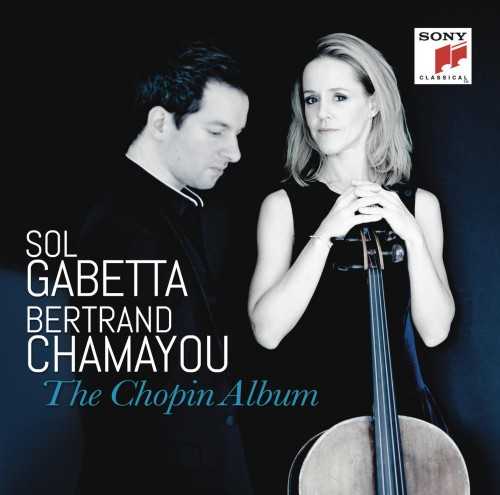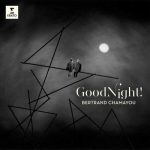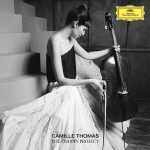
Composer: Frédéric Chopin, Auguste-Joseph Franchomme
Performer: Sol Gabetta, Bertrand Chamayou
Audio CD
Number of Discs: 1
Format: FLAC (tracks)
Label: Sony
Release: 2015
Size: 1.37 GB
Recovery: +3%
Scan: yes
Sonate für Klavier und Violoncello in g-Moll op. 65
01. I. Allegro moderato
02. II. Scherzo. Allegro con brio
03. III. Largo
04. IV. Finale. Allegro
05. Polonaise brillante in C-Dur op. 3
06. Grand Duo Concertant (uber themen aus Meyerbeers “Robert der Teufel”)
07. Etude op. 25 no. 7 in ci-Moll (Transkription in e-Moll für Cello von Alexander Glazunov)
08. Nocturne Op. 15 No. 1 (Transkription in G-Dur für Cello von A. Franchomme)
09. Nocturne für Cello und Klavier in e-Moll op. 14 Nr. 1
A “Chopin album” from a cellist is necessarily going to include the Cello Sonata, Op. 65, one of just a few works by Chopin for anything other than piano or voice. The young and highly charismatic Argentine cellist Sol Gabetta, who is carving out a niche not unlike that occupied by Jacqueline du Pré in the 20th century, and pianist Bertrand Chamayou deliver a grand version of this work, with big contrasts between the very deliberate slow movement and the commanding finale. It’s a fine recording of the work, and it complements the other two Chopin cello-and-piano pieces, virtuoso items, which are also included. But another item making this recording stand out is the presence of some less common, older items. The cellist Auguste Franchomme was the dedicatee of the Cello Sonata, and he massaged, or in the latter case composed, the cello parts of the Introduction and Polonaise and the Grand Duo Concertante operatic fantasy heard here. He is represented at the end by a Nocturne of his own composition and by an ingenious arrangement of one of Chopin’s piano nocturnes that works in material from another nocturne. This would not have seemed odd to a cellist of a century ago, who might also have played Glazunov’s beautifully idiomatic arrangement of the piano Etude in C sharp minor, Op. 25, No. 7. This is another winner from a new star of the cello. Sony’s big sound here complements Gabetta’s aims beautifully.



